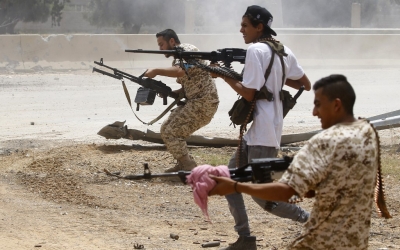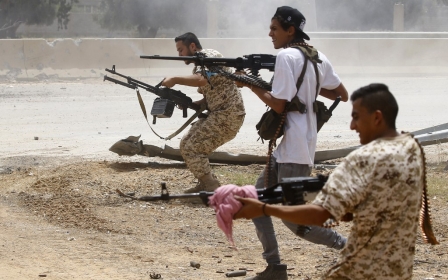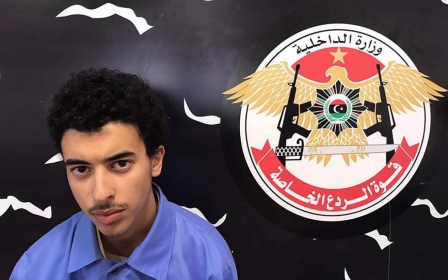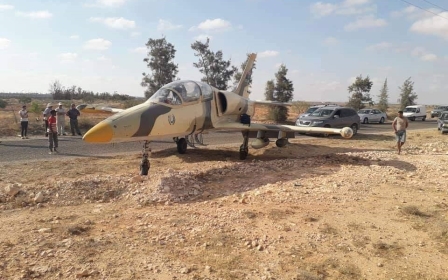Libya's warring sides agree to Eid al-Adha truce as deadly car bomb rocks Benghazi
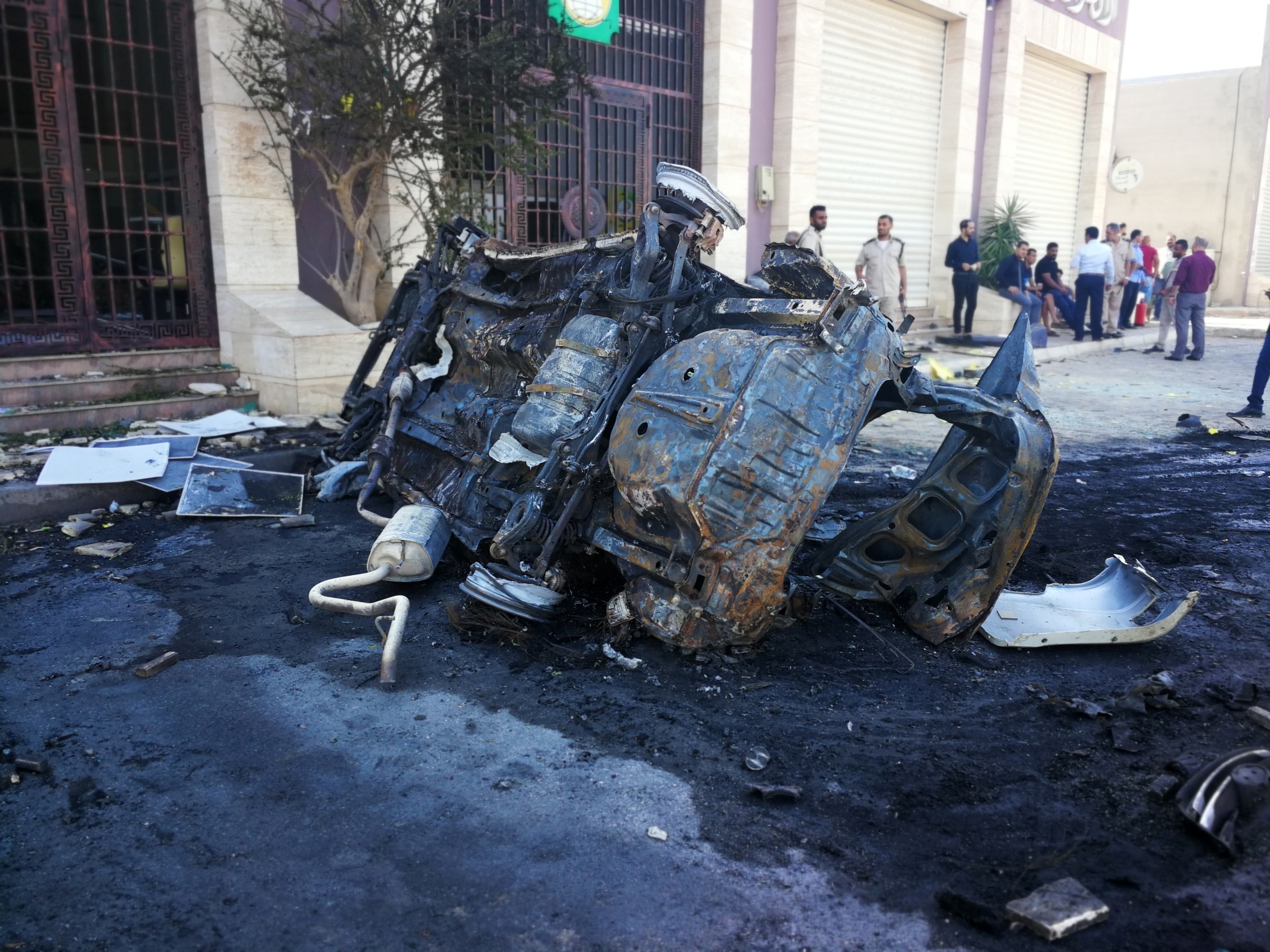
Libya's UN-recognised Government of National Accord (GNA) and Khalifa Haftar, the leader of the Benghazi-based Libyan National Army (LNA), have separately agreed to a UN-backed humanitarian truce around Tripoli for the Islamic festival of Eid al-Adha.
Hafar's spokesperson confirmed on Saturday his intention to hold his troops back from fighting during the Muslim holiday, while the GNA said earlier it was conditionally willing to accept a truce for the three-day festival which starts on Sunday.
The United Nations had called on the two sides to commit to a humanitarian truce by midnight on Friday.
Haftar's forces "announce a halt to all military operations ... in the suburbs of Tripoli," Ahmad al-Mesmari, Haftar's spokesperson, said at a news conference in the eastern city of Benghazi.
His announcement came as a car bomb was set off in Benghazi killing three UN staff members and two other mission members.
New MEE newsletter: Jerusalem Dispatch
Sign up to get the latest insights and analysis on Israel-Palestine, alongside Turkey Unpacked and other MEE newsletters
The explosion happened in front of a shopping centre and bank. At least one burned-out UN car could be seen at the scene.
LNA spokesman Ahmed Mismari told reporters two of those killed were guards with the UN Libya mission (UNSMIL).
He added that 10 people had been wounded, including children.
UN Secretary-General Antonio Guterres condemned the attack, a spokesman said in a statement on Saturday.
"The UN does not intend to evacuate from Libya," the assistant secretary-general for peace operations, Bintou Keita, later told the Security Council, which also condemned the incident.
Truce conditions
The GNA had listed four conditions for the truce, saying it was eager to "ease the suffering of the citizens and allow rescue workers to accomplish their mission".
Among its four conditions included measures that the ceasefire must be observed in "in all combat zones, with a cessation of direct and indirect fire and movement of troops".
It also said the truce must include "a ban on flights and reconnaissance overflights across the entire (Libyan) airspace as well as a halt to flights from airbases".
The GNA had also called on UNSMIL to "ensure the implementation of the truce and note any breaches".
Repeated calls
Despite the truce, it remains unclear whether the ceasefire will hold.
More than 105,000 people have been displaced during the clashes, according to the UN.
Haftar's self-styled LNA launched an offensive against the Tripoli-seat of the GNA in early April.
Over the past four months, 1,093 people have been killed in the fighting and 5,752 wounded, according to the World Health Organisation, while more than 120,000 people have been displaced.
Forces loyal to the GNA are keeping Haftar's troops at bay on the southern outskirts of the city.
UN envoy to Libya Ghassan Salame has already called several times for humanitarian truces, without success.
Middle East Eye delivers independent and unrivalled coverage and analysis of the Middle East, North Africa and beyond. To learn more about republishing this content and the associated fees, please fill out this form. More about MEE can be found here.


